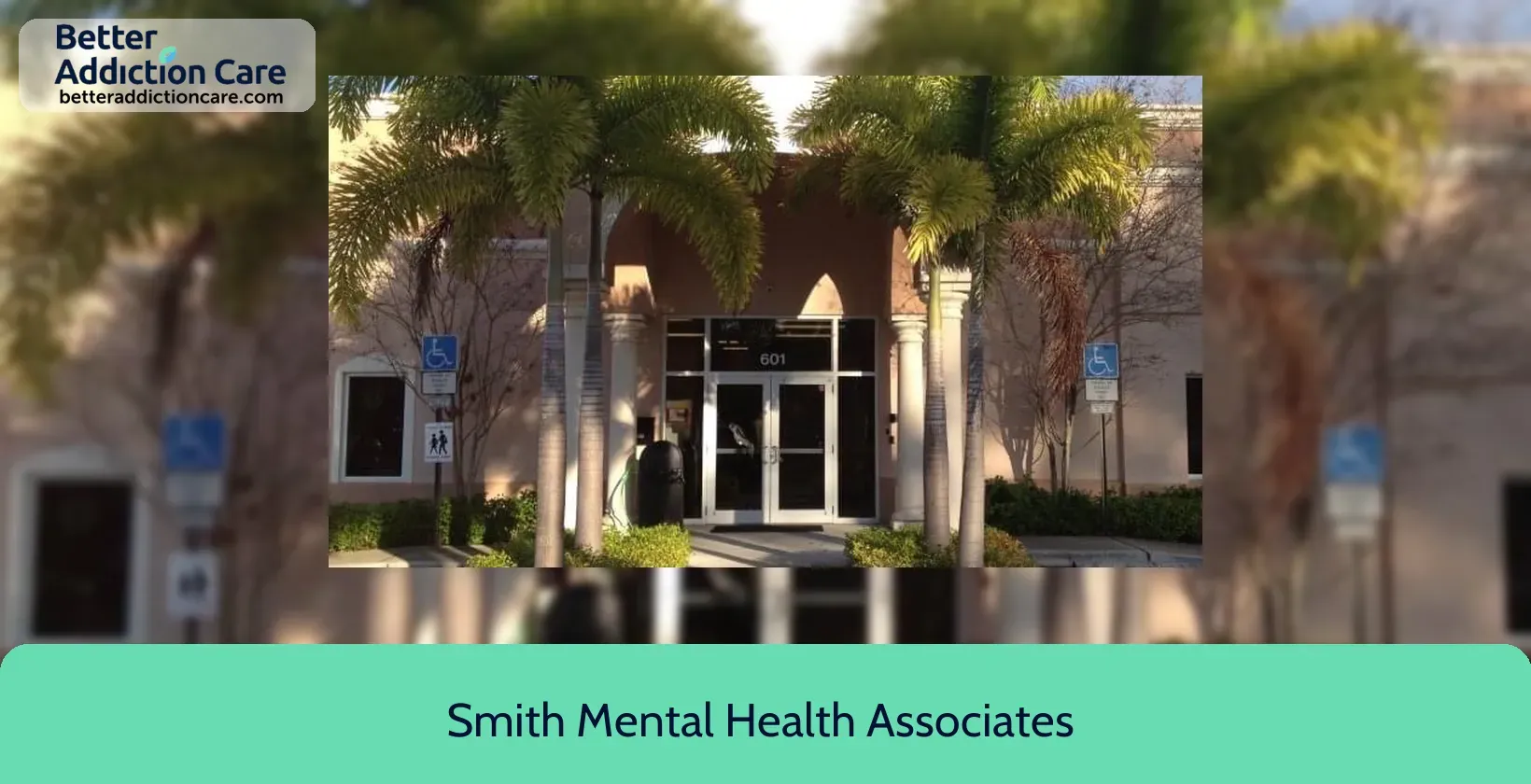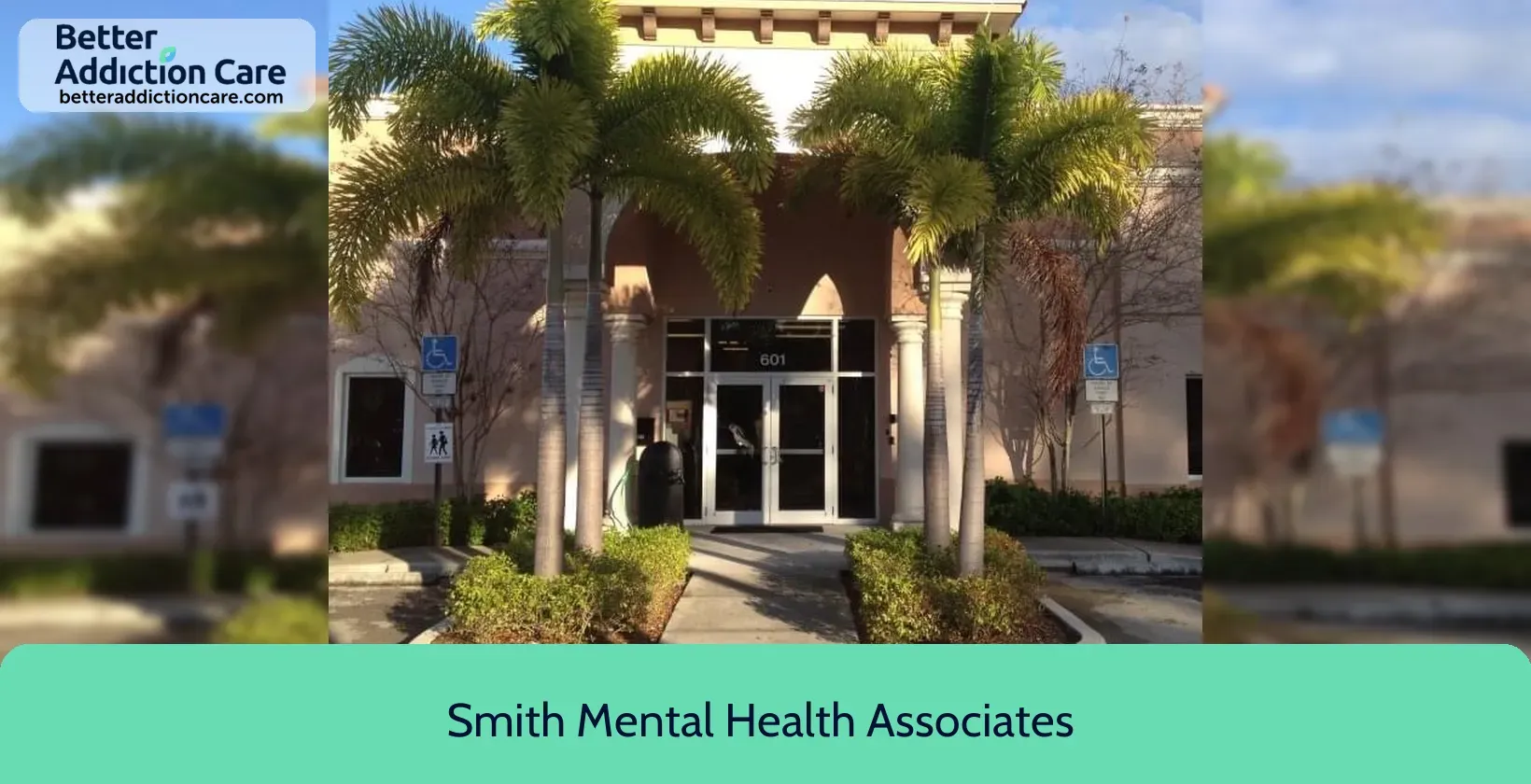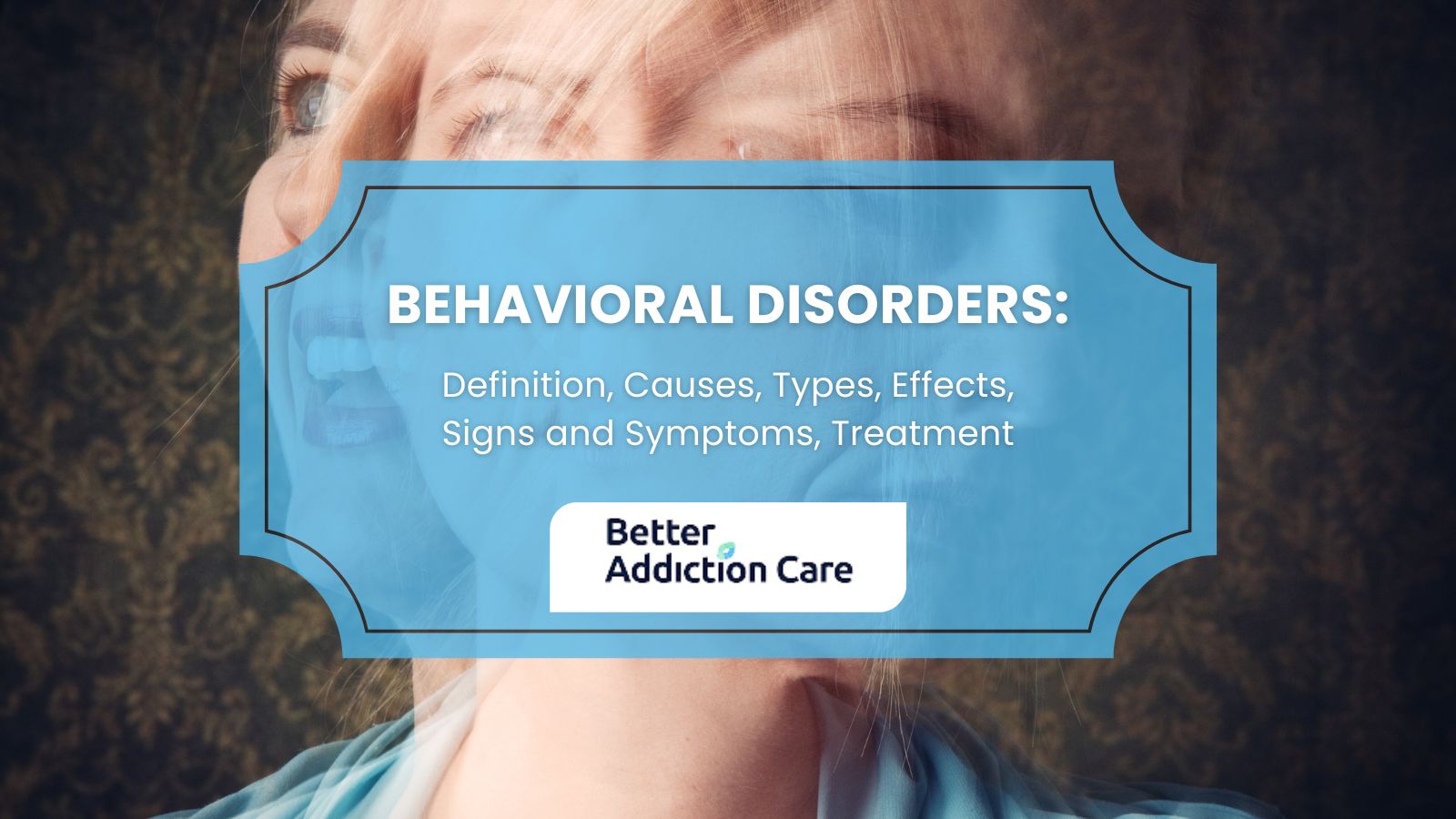Smith Mental Health Associates - Smith Community Mental Health
Overview
Smith Mental Health Associates - Smith Community Mental Health is a mental health treatment center for people seeking treatment near Broward County. As part of their treatment modalities for recovery, Smith Mental Health Associates - Smith Community Mental Health provides couples/family therapy, group counseling, and cognitive behavioral therapy during treatment. Smith Mental Health Associates - Smith Community Mental Health is located in Fort Lauderdale, Florida, accepting cash or self-payment for treatment.
Smith Mental Health Associates - Smith Community Mental Health at a Glance
Payment Options
- Cash or self-payment
- Medicaid
- State-financed health insurance plan other than Medicaid
- Private health insurance
- State mental health agency (or equivalent) funds
Assessments
- Screening for tobacco use
- Comprehensive mental health assessment
- Comprehensive substance use assessment
Age Groups
- Young adults
- Children/adolescents
- Adults
- Seniors
Ancillary Services
- Case management service
- Education services
- Family psychoeducation
- Illness management and recovery
- Psychosocial rehabilitation services
Highlights About Smith Mental Health Associates - Smith Community Mental Health
6.65/10
With an overall rating of 6.65/10, this facility has following balanced range of services. Alcohol Rehabilitation: 8.00/10, Drug Rehab and Detox: 6.00/10, Insurance and Payments: 6.00/10, Treatment Options: 6.61/10.-
Alcohol Rehabilitation 8.00
-
Treatment Options 6.61
-
Drug Rehab and Detox 6.00
-
Insurance and Payments 6.00
Treatment At Smith Mental Health Associates - Smith Community Mental Health
Treatment Conditions
- Alcoholism
- Mental health treatment
- Substance use treatment
- Co-occurring Disorders
Care Levels
- Outpatient
Treatment Modalities
- Couples/family therapy
- Group counseling
- Cognitive behavioral therapy
- Integrated Mental and Substance Use Disorder treatment
- Telemedicine/telehealth therapy
Ancillary Services
Languages
- Sign language services for the deaf and hard of hearing
- Spanish
- Other languages (excluding Spanish)
- Creole
- French
Special Programs
- Children/adolescents with serious emotional disturbance (SED)
Contact Information
Read our Most Recent Article About Drug Addiction
DISCLAIMER: The facility name, logo and brand are the property and registered trademarks of Smith Mental Health Associates - Smith Community Mental Health, and are being used for identification and informational purposes only. Use of these names, logos and brands shall not imply endorsement. BetterAddictionCare.com is not affiliated with or sponsored by Smith Mental Health Associates - Smith Community Mental Health.










